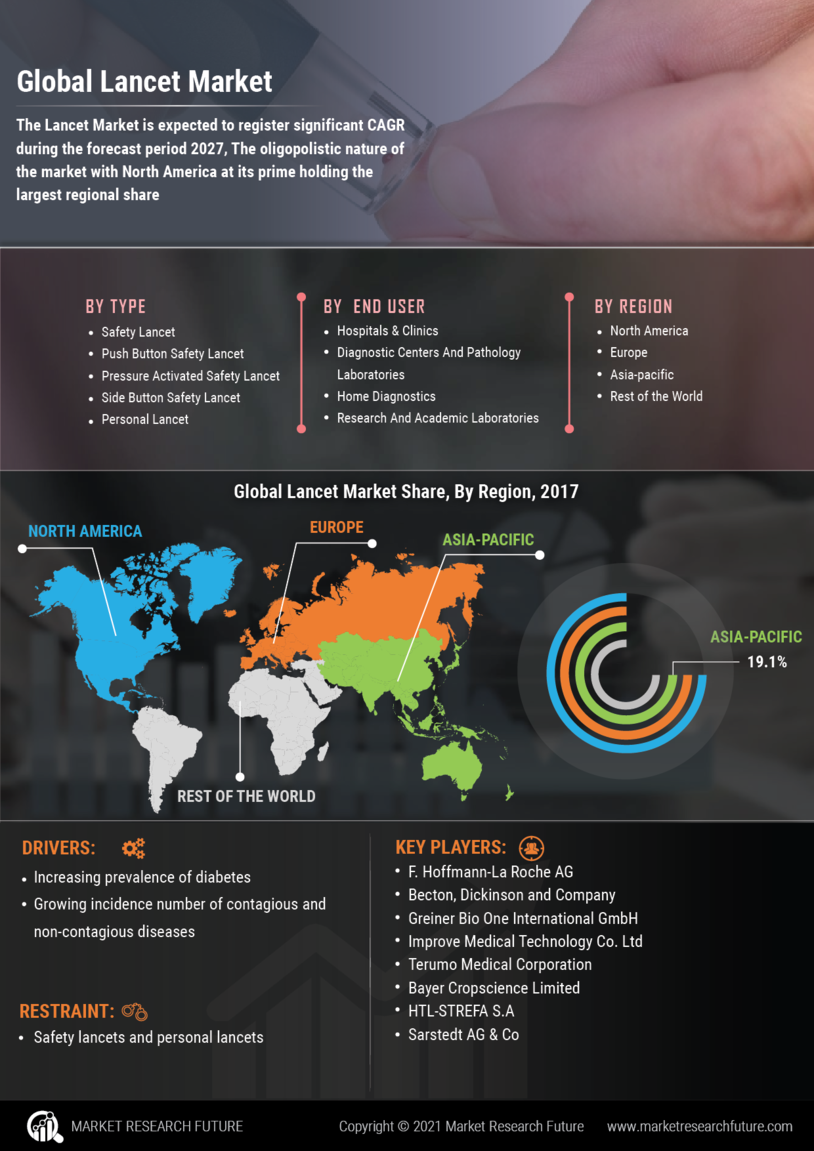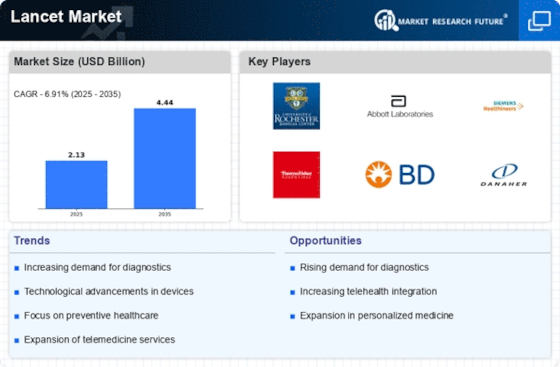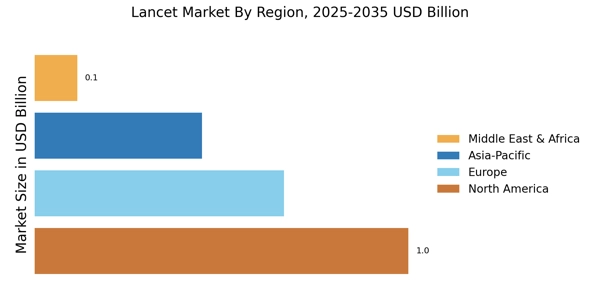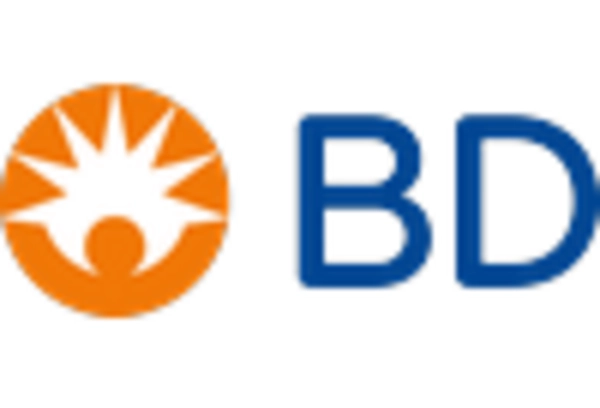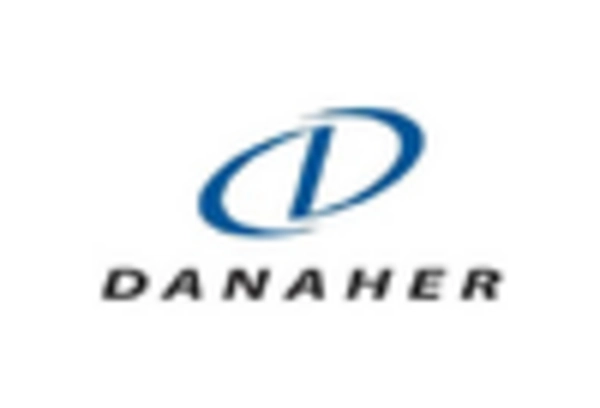Growing Aging Population
The aging population is a significant driver for the Lancet Market, as older adults typically require more medical attention and advanced healthcare solutions. With a substantial increase in the number of individuals aged 65 and above, the demand for diagnostic and therapeutic services is expected to rise correspondingly. This demographic shift is likely to create a robust market for various healthcare products, with projections indicating that the elderly care segment could expand significantly in the next few years. Consequently, the Lancet Market is poised to adapt its offerings to meet the unique needs of this demographic.
Regulatory Support and Compliance
The Lancet Market is benefiting from increased regulatory support, which is crucial for the development and approval of new medical devices and diagnostics. Regulatory bodies are streamlining processes to facilitate quicker access to market for innovative products. This supportive environment is likely to encourage investment in research and development, as companies seek to comply with evolving standards. The potential for expedited approvals may lead to a surge in new product launches, thereby enhancing the overall growth trajectory of the Lancet Market.
Rising Demand for Diagnostic Tools
The Lancet Market is experiencing a notable increase in demand for diagnostic tools, driven by the growing emphasis on early disease detection and management. As healthcare systems evolve, there is a shift towards more precise and rapid diagnostic solutions. This trend is underscored by the fact that the diagnostic segment is projected to account for a substantial share of the overall market, with estimates suggesting it could reach a valuation of several billion dollars by 2026. The Lancet Market is thus adapting to these needs by innovating and enhancing the efficacy of diagnostic products, which are essential for timely interventions.
Shift Towards Preventive Healthcare
There is a discernible shift towards preventive healthcare within the Lancet Market, as stakeholders recognize the importance of proactive health management. This trend is reflected in the increasing investment in preventive measures, including screenings and wellness programs. Data suggests that preventive healthcare initiatives could reduce overall healthcare costs by up to 30%, making them an attractive option for both providers and patients. As a result, the Lancet Market is likely to see a rise in demand for products and services that support preventive care, thereby reshaping the landscape of healthcare delivery.
Integration of Artificial Intelligence
Artificial intelligence is becoming a pivotal force within the Lancet Market, as it enhances the capabilities of diagnostic and therapeutic tools. The integration of AI technologies is expected to streamline processes, improve accuracy, and reduce operational costs. Reports indicate that AI applications in healthcare could potentially lead to a market growth rate of over 40% in the coming years. This technological evolution not only optimizes patient outcomes but also positions the Lancet Market at the forefront of medical innovation, fostering a competitive edge in a rapidly changing landscape.
